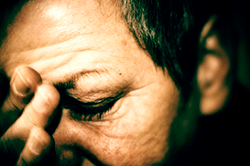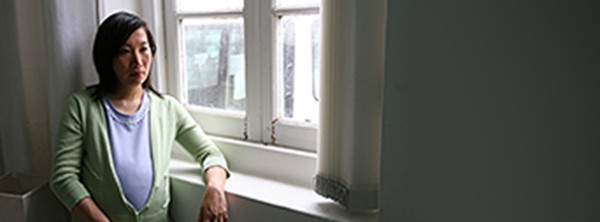Most people are anxious about their treatment: whether or not it will work and how to cope with the possible side effects. It is best to discuss your individual treatment in detail with your doctor.
Fear of the unknown can be terrifying, so acquiring some knowledge about your illness and side effects can be reassuring, and discussing your findings with your family and friends can help to relieve the tension caused by unnecessary worry.
While many may feel they have no control over their chemotherapy treatment, there are steps you can take to help yourself.
Some chemotherapy side effects are common, however any unusual or serious side effects should be reported to your doctor. If any of the following problems occur, contact your doctor immediately:
- Fever over 38°C or chills
- Sweating, especially at night
- Persistent or severe vomiting more than 24 hours after treatment.
- Easy bruising or any unusual bleeding.
- Sore throat or mouth ulcers that make eating difficult
- Burning or stinging while passing urine.
- Tenderness, redness or swelling of the skin around the area where the injection goes in.
- Any serious unexpected side effects or sudden deterioration in health.
Common side effects of chemotherapy
Side effects usually appear two to three weeks after chemotherapy begins. The extent of these side effects can vary widely from person to person. However, most side effects will gradually subside after treatment ends. Residual effects will rarely cause much of a problem.
Common side effects
- Feeling tired and lacking energy
- Feeling sick or vomiting
- Constipation or diarrhoea
- Mouth problems, mouth sores or infections
- Hair loss and scalp problems
- Itchy skin and other skin problems
- Nerve and muscle effects
- Change in hearing
- Effects on the blood
- Fertility
Fatigue and lacking energy

During chemotherapy, some people are able to carry on with life as usual, but many people find they can't do as much and feel tired during and after treatment. Tell your doctor if you find the side effects hard to manage. If a dosage adjustment is unlikely to make you feel better, your doctor may prescribe a different drug. Side effects can appear hours, or even years after you first take the drug(s).
![]() Tips
Tips
- Take the time to rest. Try to get more sleep at night and take naps during the day if needed.
- Let other people help you with tasks like shopping, child-care, housework and driving.
- Eat well and drink extra water.
- Take a walk or do some light exercise.
Feeling sick or vomiting

Not everyone feels sick (nauseated) after chemotherapy. If it does occur, it usually starts a few hours after treatment and it may last for several hours, making you feel depressed, lose your appetite and become dehydrated. To replenish what you lose when vomiting, eat as much as you can whenever you feel up to it. Forget about usual meal times. If your appetite is strongest in the early morning, make breakfast your main meal for the day, change your lunch to a light meal and have a snack at dinner time. Try a variety of foods, cooking methods and eating arrangements until you find a model that suits you.
- Have soup or congee before treatment and water or juice afterwards.
- Eat whenever you feel up to it (forget about traditional meal times).
- Have several light meals per day.
- Eat soft food to aid digestion.
- Avoid hot or greasy foods.
- Drink more water than usual.
- Take a nap after each meal.
- To alleviate nausea, stay away from the strong smells of the kitchen. The scent of perfume may make you nauseated too. Take a deep breath whenever you feel sick.
Antinausea medication can help. If you have intravenous treatment, antinausea medication may be added to the drip before and during treatment. It may take some time before you find the right medication for you but keep trying. Antinausea suppositories are sometimes used to help control nausea or vomiting. These are placed in the back passage (rectum), where they dissolve.
Chemotherapy affects rapidly multiplying cells including cancer cells and normal cells. The effect on normal cells may cause unwanted side effects. Side effects can vary greatly:
- From person to person - some people will have no side effects, others will experience a few.
- Depending on the type of drugs.
- From one treatment period to the next.
- The type and severity of any side effects have nothing to do with the success of the treatment.
Constipation or diarrhoea

Some chemotherapy drugs, as well as pain relief medicines and antinausea drugs can affect the lining of the digestive system and cause constipation or diarrhoea. Notify your doctor or nurse if you have constipation as you may have to adjust dosage or change drug. Mild diarrhoea can usually be relieved with medicine without prescription. Tell your doctor if diarrhoea causes dehydration. Resume eating as soon as diarrhoea ceases.
- If you have diarrhoea, avoid spicy foods, dairy products, coarse wholegrain products, fatty or fried foods, and raw fruit or vegetables.
- High fibre foods like fruits and vegetables can relieve constipation;
- Try light meals like soup and biscuits to avoid diarrhoea;
- Avoid spicy, greasy, pan fried or cold food;
- Use soft food to make up for lost fluids;
- Drink plenty of fluids. This will help loosen the bowels if you have constipation and replace the fluids lost through diarrhoea.
- Take a walk and try to do light exercise.
Mouth problems: Mouth sores or infections

Some chemotherapy drugs can cause infection of the mouth lining, particularly in people with head and neck cancer. An infection can make chewing and swallowing difficult. Ask your doctor or nurse whether you need to take extra care especially if you feel pain, your mouth swells or your teeth feel strange. When visiting your dentist, tell them that you’re having chemotherapy.
- Use a soft toothbrush to clean your teeth twice a day.
- Rinse (swill and spit) with warm water and salt with the recipe recommended by your nurse
- Use painkillers prescribed by doctor if necessary.
- Ask your doctor whether you need medication for the infection.
- Drink more water if a lack of saliva makes your mouth dry.
- Eat more soft foods, like soup, blended food, ice creams and noodles.
Hair loss and scalp problems

Hair loss is perhaps the most visible side effect of chemotherapy as it affects one’s appearance. However, it is actually the side effect that has the least impact on our health.
Cells responsible for hair growth (hair follicles) are affected by chemotherapy drugs because they divide fast to replace our lost hair, just like cancer cells. New hair usually starts to grow back soon after treatment.
The extent of hair loss varies widely from person to person, ranging from almost no loss to complete baldness. Your scalp may feel hot and itchy when hair starts to shed.
- Keep your hair and scalp very clean, using a mild shampoo.
- Comb or brush your hair gently.
- Use soft fabric pillowcase, such as cotton, polyester or silk pillowcase
- Avoid hair perms and dyes which may increase hair loss.
- Avoid daily use of hair dryers and harsh hair care products.
- Use sunscreen, a hat or scarf to protect your head from the sun.
- Wear a light cotton turban or beanie to bed, if you are cold at night. During the day, try wearing a hat, scarf or wig.
- If your eyelashes fall out, wear glasses or sunglasses to protect your eyes from the sun and dust while outside.
It takes between four to twelve months to grow back a full head of hair. In time your hair will return to its normal condition and you will be able to continue your usual hair care routine. Your scalp may be itchy when your hair is growing back.
Our cancer care specialists at Hong Kong Cancer Fund Support Centres can help you find a suitable wig. Chemotherapy patients are welcome to call us on 3656 0800 to reserve one.
Itchy skin and other skin problems
Chemotherapy may make your skin look darker, start to peel, or become dry, itchy or sensitive to sunlight. Wear a hat, long sleeves and long trousers and sunscreen when going out during the summer.
- Keep skin dry and free from irritation by wearing soft fabric clothing.
- Use an unscented lotion or cream on dry skin spots. Ask your doctor for advice for a suitable one.
Nerve and muscle effects
Some chemotherapy drugs can affect your nerves, causing numbness and tingling (like being pricked by pins) in your limbs. Notify your doctor if you notice any of the following: weakness on your feet; shaking as you walk; cramps in your legs; feeling of dizziness; twitching eyeballs; constipation; urine retention (an inability to completely empty the bladder); numbness in your face; thickening of your voice (hoarseness); blurred vision; ringing in the ears; and muscle loss (atrophy). Try to avoid touching cold objects or washing with cold water shortly after chemotherapy.
Change in hearing
Some chemotherapy drugs can cause hearing loss and can affect the ability to hear high-pitched sounds. They can also cause a continuous noise in the ears known as tinnitus. Notify your doctor if there are changes in your hearing.
Effects on the blood
After receiving chemotherapy, you’ll be given a blood test to make sure your blood cell counts are safe for further treatment. The soft and spongy material inside bones (the bone marrow) makes three types of blood cells:
- White blood cells: fight infection
- Red blood cells: carry oxygen to cells throughout the body
- Platelets: help blood to clot and stop bleeding.
The bone marrow's job is to maintain normal levels of blood cells (the blood count) to keep you fit and healthy. Some chemotherapy drugs can occasionally affect the bone marrow so that your blood count is reduced. The count may fall with each treatment. Occasionally, a low blood count will cause some complications related to the type of blood cell affected.
The potential side effects of chemo drugs on each type of blood cell include:
(1) Infection
During chemotherapy, colds and flu may be harder to shake off; scratches and cuts may get infected easily. If you feel unwell during chemotherapy, see your doctor immediately and – take no chances.
Before starting chemotherapy, ask your doctor whether you need to be vaccinated. Some patients will be given an injection of granulocyte-colony stimulation factor (G-CSF) to boost their white cell count. Notify your doctor immediately if you come into close contact with people who have an infection or infectious disease and you may have to take antibiotics. Avoid injury wherever possible. Wash your hands frequently especially before eating and after going to the toilet.
(2) Bleeding problems
A low platelet count makes it difficult for wounds to clot, resulting in excessive bleeding. Bruises will appear on the skin and blood may emerge from cracks in the body. Avoid this risk by taking extra care when handling sharp tools. If you do receive an injury, press hard on the wound to help stop the bleeding.
- Use electric razor instead of wet shaving.
- Do not bite or tear the cuticles of your nails, use nail cutter to cut cuticles and nails.
(3) Anaemia
A low red cell count can cause anaemia, making you feel tired, weak, dizzy, restless, breathless, look pale, and potentially even cause you to develop an heart palpitation.
- Avoid contact with people with coughs, colds and other infections.
- Be careful not to cut yourself when using scissors, knives or razors. Small cuts can harbour germs and could lead to an infection.
- Wash your hands thoroughly with soap oftern during the day to avoid spreading germs.
- Tell people who share the same space with you that you’re having chemotherapy.
Fertility

Chemotherapy may affect sexual organs and function in both women and men. This may have a temporary or permanent effect on your ability to have children (fertility). It is best for you and your partner to talk about these issues and fertility preservation options with your doctor before starting any treatment.
For women
Some women's periods become irregular during chemotherapy but return to normal after treatment. For other women, chemotherapy may cause periods to stop completely (menopause). The signs of menopause include hot flushes, sweating, particularly at night, and dry skin. Talk to your doctor about medication for relieving the symptoms of menopause. Early menopause (before age 40) may cause bones to become weaker and break more easily. Nutritional supplements and frequent weight-bearing and resistance exercise like hiking and walking can slow down bone density loss.
For men
Chemotherapy drugs may lower the number of sperm produced and reduce their ability to move. This can cause infertility, which may be temporary or permanent. In some cases, men may find it difficult to get an erection. Women may be able to store eggs (ova) and men may have sperms stored before treatment starts for use at a later date. Ask your doctor about this.
Contraception
Although chemotherapy reduces fertility, it is possible for some women to become pregnant while having chemotherapy and a man having chemotherapy could still make his partner pregnant. Pregnancy should be avoided during chemotherapy in case the drugs harm the unborn baby. Birth control (contraception) must be used. Ask your doctor about your contraceptive options. Should you or your partner become pregnant, talk to your doctor urgently.
It is also important to use barrier contraception (condoms) during sexual intercourse while on active chemotherapy treatment as there is a chance that drugs can be passed through body fluids potentially causing harm to your partner.
Surgery
Side effects of surgery will vary depending on the location and complexity of your surgery. Discuss with your doctor to get a clear understanding of what is planned for your surgery. Some common side effects may include the following:
Pain
It is common to have some pain after any surgery. Pain after surgery lessens gradually as the body heals. In the meantime, your doctor may give you pain medications to decrease your discomfort.
Fatigue
Many patients feel very tired after major surgery, especially when it involves the abdomen or chest. The fatigue is part of your body’s natural healing process and usually goes away gradually, within two to four weeks after surgery.
Loss of appetite
Poor appetite after surgery is very common, especially when general anaesthesia was used, and it could lead to temporary weight loss. Most patients regain their appetite and return to their normal weight as the effects of the surgery wear off.
Infection
This may occur at the site of the incision, but it can also start anywhere else in the body. Your health care team will teach you how to prevent infection during recovery through proper care. Signs of infection in a surgical incision include redness, warmth, increased pain, and sometimes, drainage from the wound. If these signs occur, contact your surgical care team to have the wound looked at. Antibiotics generally work well to treat most infections.
Lymphoedema
When a surgery involves the removal of lymph nodes, which fight infection in the body, fluid can build in the surrounding tissue resulting in swelling. This swelling is called lymphoedema and can cause great discomfort and disrupt normal functioning and movement of the affected body part(s). Check with your doctor if your lymph nodes are being removed during your surgery and for advice on how to manage this side effect.

Helpline
Tel: (852) 3656 0800
Donation Hotline
General donation:(852) 3667 6333
COF Monthly donation:(852) 3667 6332 
- Questions or comments: please use our comments page
- Donation enquiries: [email protected]
- Media enquiries: [email protected]
- Fundraising enquiries: see Get Involved



